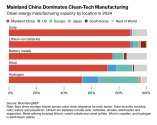Singapore has one of the hardest and strictest immigration programs there. They aim to keep Singapore 70% Chinese at least.I think it’s a little short slighted to dismiss it out of hand, one thing I have noticed is that the Indian problem in companies tends to have a critical mass issue. As long as the numbers are kept in check and only accept the best of the best, it should be manageable, and I think this is the reason Japan thinks it a good idea to have a wider cooperation with India regarding labour.
They have a small population of Indians right now that kind of worked out and have a certain level of assimilation and thinks that it will be fine with a wider induction without really understanding the sh*t they are getting themselves into.
It’s a microcosm of the whole immigration discussion. If a large number are accepted at any one time, it becomes an issue due to grouping and non-assimilation. Let’s face it, assimilation is one of things China is best at, with a proven historical record at that. Thus, I think it’s possible but needs to be managed and scrutinised to death.
Yet even SG is getting overran. CECA and other deals have flooded SG with Indians to a point its own graduates can't find work.
In my previous post I mentioned DBS which as you know had an Indian CEO not even Singaporean but from India itself. Maybe he started ok but as time went on DBS was only good for stock price but bad if you were a customer with all the outages. I heard he put a lot of his own people in DBS too. It's only through force from guys like the government he stepped down from his position. And of coz the new person from SG has to fix the mess.
If SG which is very aware of how to play the world from multiple angles cant do it, how can Japan do it? People may not know this but Japan being an isolated island is very ignorant of the world coz for most part, it never had to deal with it in person. The ignorance they have will shock a lot of people.



